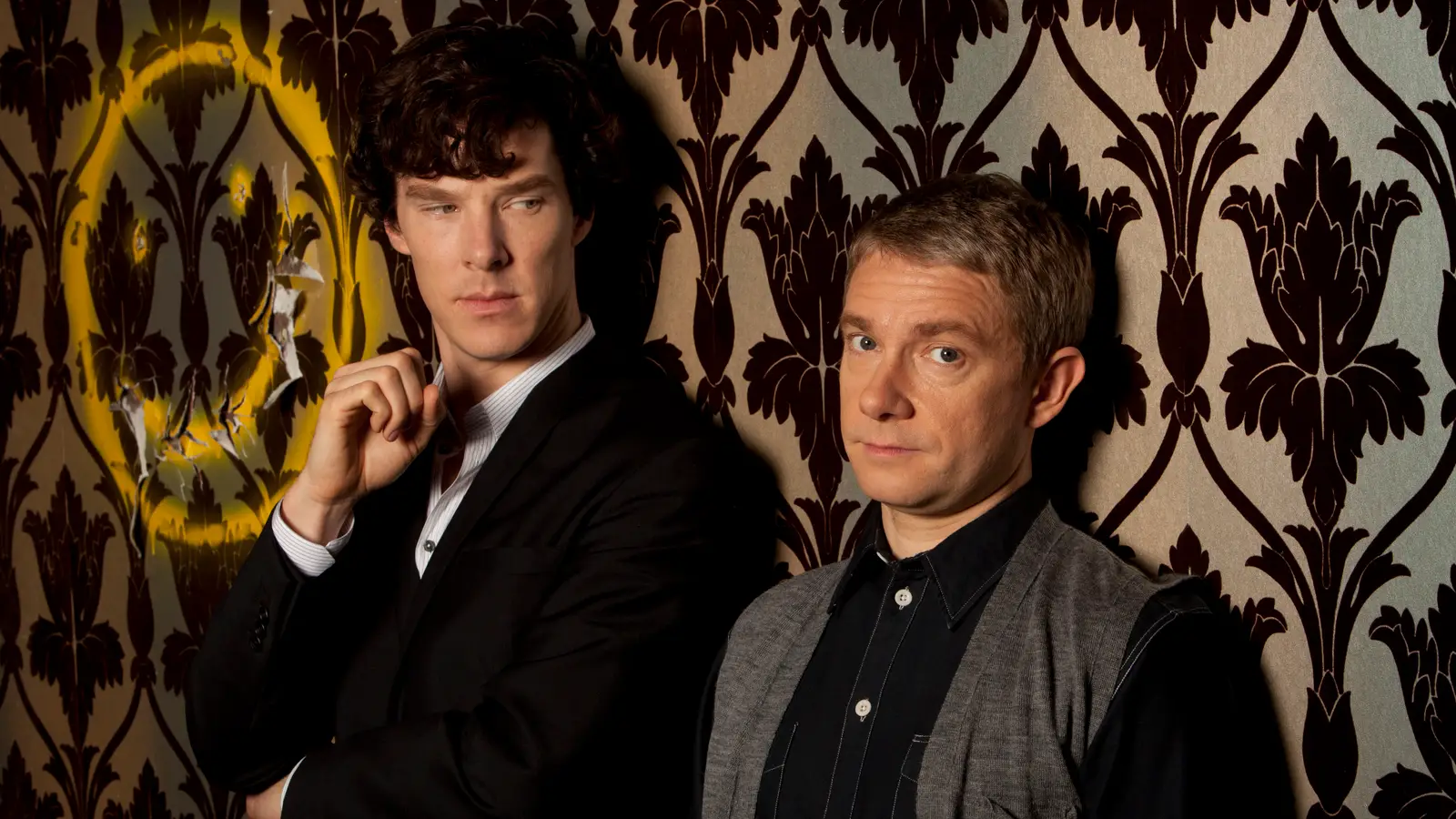Copyright Screen Rant

The BBC’s Sherlock could have been the best modern Sherlock Holmes adaptation, had it not made some very specific mistakes in its final two seasons. There are many literary characters who have made the jump to other media, and one of the most popular (and profitable) ones is Sir Arthur Conan Doyle’s Sherlock Holmes. The Great Detective has been adapted to all types of media for decades, and the status of the rights to the character has allowed artists some creative freedom. Thanks to this, there have been some modern adaptations of Sherlock Holmes, and one of the best is the BBC’s Sherlock. Created by Steven Moffat and Mark Gatiss, Sherlock brought the title character to the modern world. Sherlock adapted some of the best stories from Conan Doyle’s books to modern technology, social issues, and more, and it had a strong start in its first two seasons. Unfortunately, Sherlock had a dramatic drop in quality in its final two seasons, but there are some key ways in which the show could have been saved. Sherlock Should Have Seized Molly Hooper Among the original characters in Sherlock is Molly Hooper (Louise Brealey), a specialist registrar working in the morgue at St. Bartholomew’s Hospital, who has a big crush on Sherlock. In Sherlock’s first seasons, the detective only acknowledges Molly when he needs her, completely oblivious to her feelings for him. Molly is implied to have had a key role in Sherlock’s fake death, but after that, Molly is mostly forgotten and only brought back in the finale so the show can play with her feelings one final time. Molly is very intelligent, kind-hearted, always willing to help, and brings a good contrast to Sherlock, which could have brought an interesting dynamic to the show between Sherlock, Watson, and her. Sherlock Went Too Far With Holmes’ Deduction Skills One of the most appealing elements of Sherlock in its first seasons was how his deduction skills were portrayed on screen. This made it easier for the audience to follow Sherlock’s quick train of thought, and allowed the audience to piece the mystery together at the same time as the detective. Unfortunately, Sherlock took the character’s main skill way too far in seasons 3 and 4. Sherlock’s deduction skills became hard to follow and believe, as there’s no way he could have deduced so much from the smallest details. This removed humanity from Sherlock, and there was no need to change something that already worked perfectly. Sherlock Should Have Toned Down The Comedy Sherlock was never a comedy show, but in its final two seasons, it leaned more into that genre. Although seasons 1 and 2 definitely have their funny moments, these happen organically and fit the personalities of the characters and the dynamics between them. However, in seasons 3 and 4, Sherlock went for more comedic moments that felt forced and out of place. There was no necessity for more comedic moments in Sherlock, more so when there were other areas that needed to improve, and these moments felt more like a failed attempt to distract the audience from the show’s biggest problems. Sherlock Didn’t Need To Change Mary Morstan When Holmes returned from the dead in season 3, he and the audience were welcomed with a huge surprise over at Baker Street: Watson was in a relationship with Mary Morstan (Amanda Abbington), and they were about to get married. The problem wasn’t the addition of Morstan, but the changes made to her. Instead of bringing her in as a support to Watson and an ally to her husband and Holmes, as she was in the books, Sherlock turned Mary into a former spy whose chaotic past came after her. This added to the mess of seasons 3 and 4, and changed a great character that didn’t need to change at all. Sherlock Should Have Let Moriarty In The Past The big villain in Sherlock’s seasons 1 and 2 was Jim Moriarty (Andrew Scott), who was both the unseen mastermind of many crimes and the on-screen threat that Holmes had to face. Unfortunately, the story between Holmes and Moriarty culminated too early in Sherlock season 2’s finale, where Moriarty killed himself to push Holmes to do the same. However, the show refused to let Moriarty die and kept bringing him back in dreams and hallucinations, and went too far by teasing his supposed return in season 4 (which didn’t happen because he’s dead). Moriarty’s story should have ended for good in “The Reichenbach Fall”, and he should never have been teased to return or appear in anything but flashbacks. Sherlock Needed A New Big Villain (& Wasted Its Best Option) On the topic of Moriarty’s death, a big reason why Sherlock couldn’t let him go was that the show never had a proper villain again. After Moriarty’s death, Sherlock had forgettable one-episode villains, and thanks to this, it completely wasted its best Moriarty replacements: Sebastian Moran, Charles Augustus Magnussen, and Culverton Smith. The biggest wasted opportunity was Sebastian Moran, who, in the books, is described as the “second most dangerous man in London”, right after Professor Moriarty, who was his employer. Sherlock could have made him its next big villain, but instead, it turned him into a minor and forgettable antagonist. Sherlock Should Have Stayed As A Mystery Show Among the things that Sherlock didn’t need to change at all and that contributed to its decline was its change in genre and style. Sherlock began as a detective show, with Holmes and Watson focusing on solving a different crime every episode, with some room to explore their dynamic and more. After Holmes’ return from the dead, Sherlock went full-on drama, focusing more on the struggles in the characters’ personal lives (especially with the arrival of Mary Morstan) rather than on their jobs as detectives. Had Sherlock continued to be a crime mystery show, its legacy might have been saved. Sherlock Should Have Given An Official Explanation To How He Faked His Death The biggest mistake in Sherlock’s history is not properly explaining how Holmes faked his death. After Moriarty killed himself in front of Holmes in “The Reichenbach Fall”, the detective had no other choice than to do the same… except that he faked his death, unbeknownst to Watson, Lestrade, and pretty much everyone except Mycroft (and possibly Molly, too). Between seasons 2 and 3, fans of the show went wild with truly creative and smart theories on how Holmes could have faked his death, but, frustratingly, Sherlock never actually explained how he did it. Instead, Sherlock mocked fans and their theories and never gave an official explanation, as it implied that what Sherlock told Anderson was a hallucination of the latter. Not explaining how Holmes faked his death ended up doing more harm than good, more so after how the show mocked its own loyal audience. Such a big problem had a simple solution, and to this day, it’s unclear how exactly he did it. Sherlock Should Have Continued To Focus On Holmes & Watson’s Dynamic A huge change in Sherlock seasons 3 and 4 was about the dynamic between Holmes and Watson. As mentioned above, with the arrival of Mary Morstan, the show went more on a drama route than a mystery one, and in the process, it also sacrificed its main focus: Holmes and Watson together solving crimes. Surely, Sherlock’s final two seasons still had Holmes and Watson solving crimes, but the focus was more on their individual struggles rather than on their dynamic as both best friends and detective partners. This led to Sherlock losing its essence and was key to its dramatic decline. Sherlock Should Have Never Introduced Eurus Holmes While all of the above points would have greatly improved Sherlock’s final seasons, there’s one that, even without the rest, could have saved the show: never introducing Eurus Holmes (Sian Brooke). In season 4, Sherlock made the huge reveal that there’s a third Holmes sibling, but unlike her brothers, she’s a criminal mastermind. Eurus came up with an elaborate and nonsensical plan with which she looked to bring her siblings and Watson down, but she was ultimately defeated by Holmes. Eurus’ existence makes no sense, and instead of being a scary villain, she was the most unnecessary and nonsensical character Sherlock ever had.



